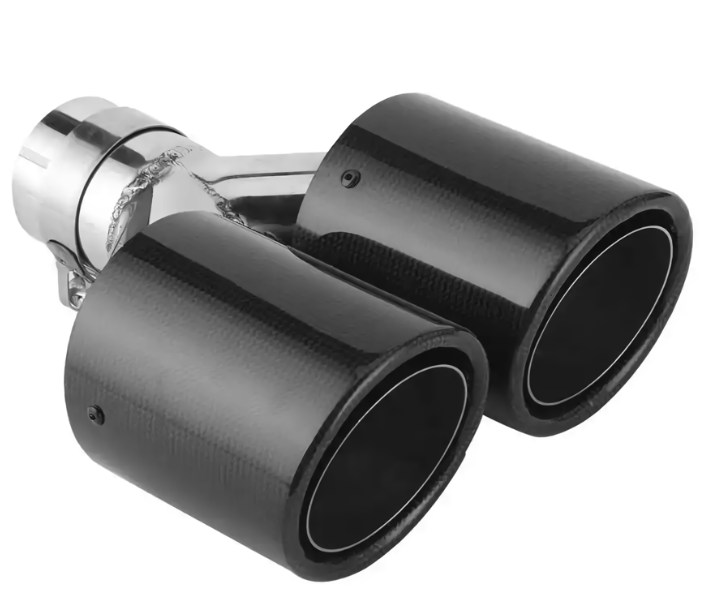The Cool Revolution: How Refrigerant Compressors Are Shaping the Future of Sustainable Cooling

The marvel of modern cooling technology, particularly in automotive and home appliance sectors, owes much of its efficacy and ubiquity to the humble refrigerant compressor. These devices are at the heart of what makes air conditioning in cars bearable during the scorching summer months and why your refrigerator keeps your food fresh and safe to eat. The role of compressors transcends mere temperature regulation; they are pivotal in defining the efficiency, longevity, and environmental impact of cooling systems. This article delves into the intricacies of refrigerant compressors, exploring their advantages over traditional air compressors across several dimensions including energy efficiency, performance, and sustainability. Through a blend of technical insights and practical considerations, we illuminate how these components not only enhance the functionality of cooling systems but also contribute to more sustainable practices in the face of global warming. By examining the latest innovations and anticipating future trends, this discussion aims to provide a comprehensive understanding of the pivotal role refrigerant compressors play in both current applications and future developments in cooling technology.
1. Introduction to Cooling System Compressors
At the core of most modern cooling systems—whether they’re installed in vehicles, refrigerators, or industrial chillers—lies the compressor, a component critical for the operation of these systems. Compressors function by circulating refrigerant throughout the cooling system, which in turn absorbs and dissipates heat, thus maintaining the desired temperature levels within the enclosed space. This process is fundamental not only for comfort in automotive environments during hot weather but also for preserving food, medicines, and other perishables in appliances like refrigerators and freezers. The role of compressors extends beyond mere temperature regulation; it is also instrumental in ensuring the efficiency and reliability of the cooling system as a whole. By compressing the refrigerant, they increase its pressure and temperature, enabling it to carry heat more effectively from one area to another, where it is then released. This cycle repeats continuously, maintaining an optimal environment. As technology progresses, the efficiency and effectiveness of these compressors have seen significant improvements. Modern compressors are designed to consume less energy while providing better cooling capabilities, contributing to lower electricity bills and reduced environmental impact. Furthermore, advancements in compressor technology have led to the development of more compact, quieter, and more durable models, enhancing user experience across various applications.
Understanding Compressors
Compressors, in their essence, are devices designed to increase the pressure of a gas by reducing its volume, playing an indispensable role in cooling systems by moving refrigerant through the system’s cycle, enabling heat exchange, and thus, cooling. The basic principle behind their operation hinges on the thermodynamic process where compressing a gas raises its temperature, which is then cooled and expanded, absorbing heat from the surrounding environment. This cycle is crucial in systems like air conditioners, refrigerators, and automotive cooling systems, providing the means to transfer heat from inside to outside the desired area, thereby reducing the internal temperature. However, it’s important to distinguish between air compressors and refrigerant compressors, which, despite sharing the fundamental principle of compression, serve distinctly different purposes within cooling systems. Air compressors are primarily used for pneumatic tools, tire inflation, and other applications requiring pressurized air, without directly involving in a cooling cycle. On the other hand, refrigerant compressors are specifically designed for cooling applications. They compress refrigerant gases like Freon, which have properties that allow them to absorb a significant amount of heat during the evaporation process. This specialization makes refrigerant compressors more adept at facilitating efficient heat exchange in cooling systems, highlighting their critical role in providing effective temperature control in various settings, from domestic appliances to automotive air conditioning systems.
The Importance of Compressors in Cooling Systems
The essentiality of compressors within cooling systems cannot be overstated, as they are fundamentally responsible for enabling the refrigeration cycle—a key process that allows cooling appliances and vehicles to reduce and maintain desired temperature levels. The refrigeration cycle begins when the compressor compresses the refrigerant, increasing its pressure and temperature. This high-pressure, high-temperature gas then flows through a condenser where it releases its heat to the surroundings and condenses into a liquid. Following this, the liquid refrigerant passes through an expansion valve, reducing its pressure and temperature before entering the evaporator. In the evaporator, the refrigerant absorbs heat from the interior environment, cools it, and turns back into a gas, which the compressor then again compresses, continuing the cycle. This continuous loop is what makes modern refrigeration and air conditioning possible. Compressors are the driving force behind this process, ensuring that the refrigerant moves effectively through the system to facilitate constant heat exchange. Without compressors, the refrigeration cycle would be disrupted, rendering the cooling system ineffective. Their role in vehicles is equally critical. Automotive cooling systems rely on compressors not only to provide comfort to passengers by conditioning the air inside the vehicle but also to regulate the temperature of the engine, preventing overheating. The versatility and indispensability of compressors across different cooling applications highlight their integral role in modern day temperature regulation and climate control solutions.
2. Efficiency and Performance
When placed side by side, refrigerant compressors frequently outshine their air compressor counterparts in terms of efficiency and performance within cooling applications. This superiority stems from the inherent design and operational differences tailored to the unique demands of cooling systems. Refrigerant compressors are specifically engineered to move refrigerant through the cooling cycle, efficiently facilitating heat exchange between the interior environment and the outside. This is pivotal in high-demand environments such as refrigeration and HVAC systems, where precision in temperature control and energy efficiency are crucial. In contrast, air compressors, while versatile, are not optimized for the refrigeration cycle, thus leading to less efficient energy use when adapted for cooling purposes. Additionally, refrigerant compressors employ various technologies, such as variable speed drives, which enable them to adjust their performance based on the cooling demand. This adaptability not only enhances efficiency by minimizing energy wastage but also improves performance by maintaining more consistent temperatures within the cooling system. Furthermore, innovations in refrigerant compressor technology have led to the development of models that boast superior thermodynamic properties, which allow for greater heat absorption and release capacity. This, coupled with advancements in environmentally friendly refrigerants with lower global warming potential, enhances the overall efficiency and performance of these systems, ensuring they meet both current and future cooling demands while adhering to stringent environmental standards.
Energy Efficiency
Energy efficiency in cooling systems is increasingly becoming a pivotal parameter for selection, driven by rising energy costs and environmental considerations. Refrigerant compressors are at the forefront of this shift, demonstrating remarkable energy efficiency advancements that significantly reduce power consumption while enhancing cooling efficiency. These compressors are designed to optimize the refrigeration cycle, minimizing energy waste during compression and heat exchange processes. This is achieved through innovative technologies such as variable speed drives (VSDs) or digital inverter technologies, which allow refrigerant compressors to adjust their output based on real-time cooling demand. By operating at lower speeds when full capacity is not needed, these compressors consume less power, reducing overall energy use and operational costs. Additionally, modern refrigerant compressors are engineered to have tighter seals, reducing leakage of refrigerant gases, and employing more efficient compression mechanisms. This not only contributes to their energy-saving capabilities but also enhances their overall cooling performance, ensuring that temperatures are maintained more consistently and efficiently. Furthermore, the use of advanced refrigerants with better thermodynamic properties further amplifies the energy efficiency of these compressors. These refrigerants are capable of absorbing and releasing more heat than traditional refrigerants, allowing for more efficient heat exchange processes, thereby reducing the energy required to maintain optimal temperatures in cooling systems.
Cooling Capacity and Performance
In the realm of cooling systems, the performance and cooling capacity of refrigerant compressors markedly exceed those of air compressors, highlighting their efficiency and suitability for a wide range of cooling applications. Refrigerant compressors are designed to optimize the refrigeration cycle, allowing for the accurate and efficient transfer of heat. This specialization enables them to achieve higher cooling capacities, making them ideal for applications requiring precise temperature control, such as in refrigeration and air conditioning systems. On the other hand, air compressors, while versatile in their utility, do not inherently possess the capacity to facilitate such efficient heat exchange. Air compressors are primarily utilized for applications requiring compressed air, like pneumatic tools and inflating tires, and lack the mechanisms necessary for efficient cooling. The distinction in performance extends to how each compressor type manages thermal load. Refrigerant compressors can sustain a consistent cooling effect, adjusting to variations in thermal load with greater finesse, thanks to technologies such as variable speed drives. This adaptability minimizes energy consumption while maintaining optimal temperature conditions, ensuring superior performance and efficiency. Additionally, advancements in refrigerant technology, including the development of substances with lower global warming potential and better heat absorption capabilities, have further amplified the cooling capacity and performance of refrigerant compressors. The combination of these innovative elements underscores the capacity of refrigerant compressors to deliver enhanced cooling effectiveness compared to air compressors, affirming their significance in cooling system applications.
3. Durability and Maintenance
The longevity and maintenance of cooling system components are crucial factors in determining their overall cost-effectiveness and reliability. When comparing refrigerant compressors with air compressors, several aspects highlight the advantages of the former in terms of durability and maintenance needs. Refrigerant compressors are typically designed for continuous use in demanding environments, such as in HVAC systems or refrigeration. Thanks to their robust construction and the use of high-quality materials, these compressors exhibit a notable resistance to wear and tear, contributing to their longevity. The sealed nature of many refrigerant compressor designs further protects the internal components from contaminants and environmental factors, reducing the likelihood of mechanical failure and extending the lifespan of the unit. In contrast, while air compressors are also built to last, they often operate in environments that may introduce more dust and particulate matter into the system, potentially leading to increased wear and maintenance requirements. Regarding maintenance, refrigerant compressors are engineered with efficiency and ease of service in mind. Many modern systems feature diagnostic capabilities and modular designs that simplify troubleshooting and component replacement, minimizing downtime and maintenance costs. However, it’s critical to note that the maintenance of refrigerant compressors must be performed by qualified professionals due to the technicalities involved with refrigerant handling and system pressure. Air compressors, being generally less specialized, can often be serviced by a broader range of technicians, potentially lowering immediate service costs but not necessarily translating to lower total cost of ownership over the long term given their different application contexts.
Longevity and Reliability
Refrigerant compressors distinguish themselves from their air compressor counterparts not only in efficiency and performance but also in their inherent longevity and reliability. This distinction is largely attributable to the specialized design and construction materials used in their manufacturing, which are selected to withstand the rigorous demands of the cooling cycle over extended periods. Refrigerant compressors operate under conditions that require precise control of temperature and pressure, and thus, are engineered with tight tolerances and high-quality seals and bearings. These components are critical for maintaining the integrity of the refrigeration cycle and preventing leaks of refrigerant gases, which could impair performance and lead to system failure. Additionally, the lubrication systems within refrigerant compressors are designed to ensure optimal operation under varying loads and temperatures, further enhancing their longevity and reducing wear over time. In contrast, air compressors, while robust, may not be subjected to the same level of specialized engineering for continuous operation in cooling systems, which can affect their long-term reliability in such applications. Moreover, the technological advancements in refrigerant compressor design, including the use of inverter technology, have allowed for smoother operation with less mechanical stress, contributing to their extended service life. These innovations not only improve energy efficiency but also reduce the frequency and severity of maintenance requirements, ensuring that refrigerant compressors remain a reliable component in cooling systems for years to come.
Ease of Maintenance
The design and operational framework of refrigerant compressors confer significant maintenance advantages, which translate into lower overall costs and simpler upkeep processes when compared to other compressor types. One of the core aspects contributing to the ease of maintenance is the sealed nature of many refrigerant compressor units. Hermetically sealed compressors, common in refrigeration and air conditioning systems, are designed as closed units where the compressor and motor operate within the same sealed environment. This design significantly reduces the ingress of contaminants and eliminates the need for routine lubrication, thereby minimizing maintenance requirements and extending the operational life span of the unit. Additionally, advancements in refrigerant compressor technology, such as the integration of smart diagnostic tools and modular components, further simplify maintenance processes. Smart diagnostics can preemptively alert operators to potential issues before they escalate into major failures, facilitating timely intervention and reducing downtime. Modular designs mean that individual components can be serviced or replaced without the need to overhaul the entire system, leading to more straightforward and less costly repairs. Moreover, the increased energy efficiency of refrigerant compressors not only lowers energy costs but also results in less wear and tear on the components, indirectly contributing to reduced maintenance needs. Together, these factors underscore the comparative advantage of refrigerant compressors in terms of maintenance, offering users a more user-friendly and cost-effective solution for their cooling system requirements.
4. Environmental Impact
The environmental impact of cooling systems, particularly the use of refrigerant versus air compressors, is a crucial aspect of sustainable practices within the industry. Refrigerant compressors, pivotal in HVAC and refrigeration, utilize gases capable of heat absorption and release in a cycle. The types of refrigerants used historically have raised concerns, especially those with high Global Warming Potential (GWP) and Ozone Depletion Potential (ODP). In response, the industry has shifted towards the development and use of more eco-friendly refrigerants, such as hydrofluoroolefins (HFOs), which significantly reduce environmental impact compared to older refrigerants like chlorofluorocarbons (CFCs) and hydrochlorofluorocarbons (HCFCs). This transition underlines the commitment to sustainability and minimizing the carbon footprint of cooling technologies. On the other hand, air compressors, though not directly utilizing refrigerants, also contribute to environmental footprint through energy consumption. The efficiency with which they convert electrical energy into kinetic energy plays a pivotal role in determining their environmental impact. As such, advancements in air compressor technology focusing on higher efficiency and lower energy consumption contribute to more sustainable industrial practices. Overall, the drive towards using refrigerants with lower GWP and more efficient compressor technologies underscores the cooling industry’s adaptive measures to mitigate environmental impact. It represents a balancing act between meeting cooling needs and committing to environmental stewardship, encouraging the development and adoption of technologies that align with global sustainability goals.
Refrigerants and Global Warming
In the quest to mitigate global warming, the cooling industry has taken significant strides by transitioning to the use of eco-friendly refrigerants. Historically, commonly used refrigerants such as chlorofluorocarbons (CFCs) and hydrochlorofluorocarbons (HCFCs) have been major contributors to greenhouse gas emissions, leading to ozone depletion and an increase in global warming potential (GWP). In response, there has been a global shift towards refrigerants with lower GWP, such as hydrofluoroolefins (HFOs) and natural refrigerants (e.g., ammonia, carbon dioxide, and hydrocarbons). These substances are designed to provide an effective medium for heat absorption and release in cooling systems, without the adverse environmental impacts associated with their predecessors. The use of eco-friendly refrigerants is not only a regulatory compliance matter but also a corporate responsibility initiative, aiming to reduce the carbon footprint of cooling systems. This transition is supported by innovations in refrigerant technology and compressor design, enabling the industry to achieve the same, if not improved, levels of cooling efficiency while significantly minimizing environmental harm. Furthermore, the adoption of these environmentally benign refrigerants is complemented by the development of more energy-efficient cooling systems, further amplifying their impact on reducing global warming. As the cooling industry continues to evolve, the emphasis on using eco-friendly refrigerants showcases a commitment to sustainability and the global effort to combat climate change, bridging the gap between technological advancement and environmental responsibility.
Energy Consumption and Emissions
The efficiency of refrigerant compressors plays a pivotal role in the broader context of energy consumption and greenhouse gas emissions, especially within the cooling industry. As the heart of refrigeration and air conditioning systems, these compressors influence the amount of electrical energy required to maintain desired temperature levels. Advanced refrigerant compressors are designed to maximize the thermal transfer efficiency, thereby requiring less electrical power to achieve the same cooling effect compared to less efficient models. This reduction in energy consumption directly correlates to lower greenhouse gas emissions, particularly in regions where electricity generation relies on fossil fuels. Moreover, the adoption of variable speed drives (VSDs) in refrigerant compressor technology allows these systems to adjust their operating speed to match the cooling demand precisely. This adaptability not only further reduces energy usage but also decreases wear and tear on the compressor, extending its service life and reducing the need for frequent replacements, which, in turn, contributes to less manufacturing emissions. In addition to technological advancements, the shift towards refrigerants with lower global warming potential (GWP) minimizes the environmental impact in the event of leaks, further reducing the overall greenhouse gas emissions associated with cooling systems. Collectively, these improvements in refrigerant compressor efficiency, alongside sustainable refrigerant choices, embody significant strides towards mitigating climate change, underscoring the cooling industry’s role in advancing energy-efficient solutions and promoting environmental stewardship.
5. Innovations and Future Trends
The landscape of compressor technology is continuously evolving, driven by innovations aimed at enhancing efficiency, reducing environmental impact, and meeting the growing demands of applications in automotive cooling, refrigeration, and household appliances. One of the significant advancements in this area is the development of variable speed compressors, which dynamically adjust their output to match the cooling demand. This not only improves energy efficiency but also extends the lifespan of the device by reducing wear and tear. Moreover, the integration of smart technology into compressors allows for real-time monitoring and control, optimizing performance and predicting maintenance needs to prevent breakdowns. These smart compressors can communicate with other devices within a connected home or vehicle system, providing a seamless, energy-efficient cooling experience. As we look to the future, the trend towards electrification and sustainability in automotive and home appliances sectors suggests a growing reliance on compressors that are compatible with eco-friendly refrigerants, consume less energy, and operate more quietly. Innovations such as magnetic bearing technology, which eliminates friction and thus reduces energy consumption, are on the horizon for the next generation of compressors. Furthermore, the push for miniaturization without compromising performance is leading to the development of smaller, more compact compressors that can be integrated into increasingly tight spaces, expanding their applications. Together, these advancements and trends indicate a future where compressor technology continues to play a critical role in enhancing the efficiency and sustainability of cooling systems across various domains.
Technological Advancements
The realm of refrigerant compressor technology is witnessing a remarkable era of innovation, with new advancements driving significant improvements in both performance and energy efficiency. Among these innovations, the adoption of variable speed technology stands out for its ability to precisely match compressor output to cooling demand. Unlike traditional fixed-speed compressors that operate at full capacity irrespective of the actual need, variable speed compressors adjust their speed dynamically. This results in substantial energy savings and a more consistent temperature control, contributing to enhanced overall system efficiency. Additionally, the integration of digital inverter technology has revolutionized compressor operation. By converting the incoming electrical current into a variable frequency, digital inverters allow compressors to operate at an optimal speed across a wider range, further improving energy efficiency and reducing wear and tear on the compressor’s internal components. Another significant breakthrough is the development of oil-free magnetic bearing compressors. This technology leverages magnetic levitation to eliminate mechanical contact within the compressor, drastically reducing friction losses and operational noise. Moreover, the absence of oil in the system prevents contamination of the refrigerant and enhances heat transfer efficiency. These technological advancements not only underscore the industry’s commitment to sustainability and performance but also pave the way for the next generation of refrigerant compressors, promising even greater efficiencies and a reduced environmental footprint.
Future of Cooling Systems
The future of cooling systems is poised for transformative changes with emerging developments in compressor technology that promise to revolutionize efficiency, performance, and environmental sustainability. One of the most anticipated advancements is the further refinement of ultra-efficient compressors using next-generation refrigerants. These refrigerants, with even lower global warming potential (GWP) and no ozone depletion potential (ODP), when combined with cutting-edge compressor technology, will significantly reduce the environmental impact of cooling systems. Moreover, the integration of Artificial Intelligence (AI) and Internet of Things (IoT) capabilities in compressor systems is on the horizon. This will enable predictive maintenance, optimized performance based on real-time data, and seamless integration into smart home and industrial management systems, further enhancing energy efficiency and reducing operational costs. Additionally, the push towards miniaturization of compressor components without sacrificing power or efficiency presents new opportunities for cooling applications in smaller, more compact devices and spaces. This can lead to innovative cooling solutions for personal electronics, wearable technologies, and other fields that have previously been constrained by the size and efficiency of traditional cooling systems. As research continues to advance in materials science and engineering, the introduction of novel materials and designs for compressors might also play a crucial role in achieving unprecedented levels of efficiency and reliability. Together, these potential future developments in compressor technology represent a significant leap forward for the cooling industry, ensuring that cooling systems become more sustainable, efficient, and adaptable to the evolving needs of a warming planet.
What makes refrigerant compressors more efficient than air compressors in cooling systems?
Refrigerant compressors are designed specifically for cooling systems, optimizing the refrigeration cycle for efficient heat exchange. Variable speed technology and digital inverters enable them to adjust operation based on demand, reducing energy usage and enhancing cooling effectiveness compared to air compressors.
How can the environmental impact of refrigerant compressors be minimized?
Minimizing environmental impact involves adopting eco-friendly refrigerants with lower global warming potential (GWP) and no ozone depletion potential (ODP), improving compressor efficiency to reduce energy consumption, and employing technologies like magnetic bearings to decrease operational friction and wear.
What are the maintenance advantages of refrigerant compressors?
Refrigerant compressors often offer easier maintenance due to their sealed designs, which protect against contaminants and reduce wear. Advances in technology, such as diagnostic tools, allow for proactive maintenance, and modular designs simplify repairs, contributing to overall lower maintenance costs.
What future innovations in compressor technology are anticipated?
Future innovations include further efficiency enhancements through next-generation refrigerants and AI-driven optimization for predictive maintenance and performance adjustment. Additionally, miniaturization efforts aim to expand the application of cooling systems without compromising efficiency or power.
How do variable speed drives (VSDs) improve the efficiency of refrigerant compressors?
VSDs allow refrigerant compressors to adjust their speed dynamically to match cooling demand accurately. This optimizes energy use, reduces wear and tear, and ensures a more consistent temperature control, leading to significant improvements in overall system efficiency and performance.
Are there eco-friendly alternatives to traditional refrigerants?
Yes, there are eco-friendly alternatives such as hydrofluoroolefins (HFOs) and natural refrigerants like ammonia, carbon dioxide, and hydrocarbons. These refrigerants have lower global warming potentials and are designed to minimize environmental impact while maintaining efficient cooling.
Can smart technology in compressors really predict maintenance needs?
Yes, smart technology in compressors can monitor system performance in real-time, using AI and data analytics to predict maintenance needs. This helps prevent unexpected breakdowns, optimizes efficiency, and extends the compressor’s lifespan by addressing issues before they escalate.


